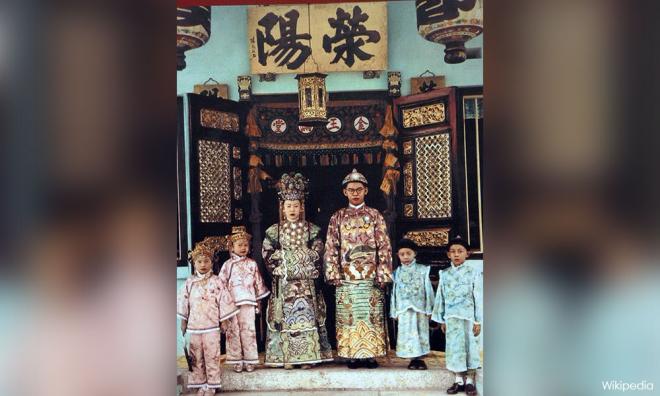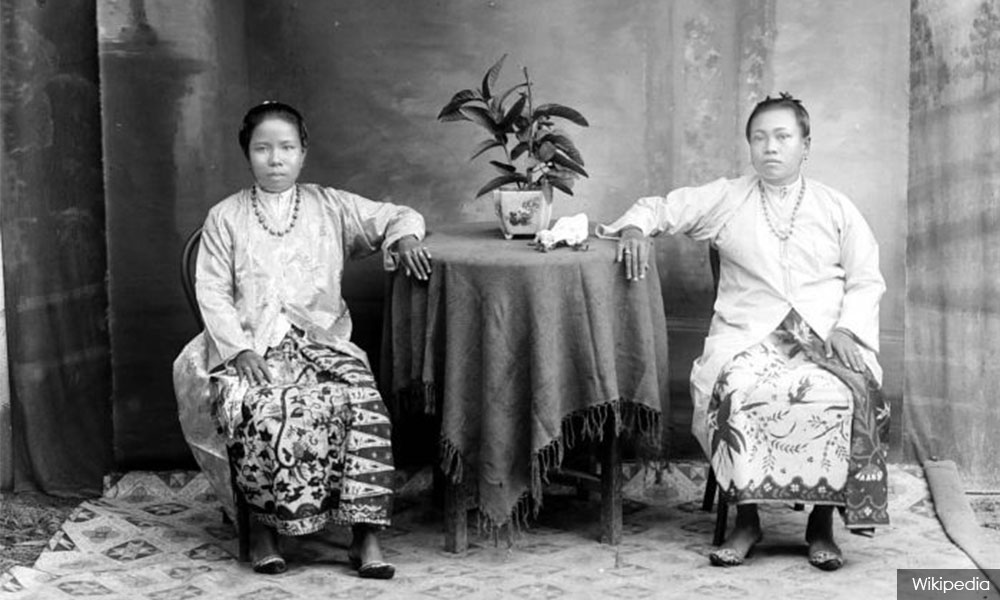
A Baba Nyonya TV series “The Ghost Bride” currently streamed on Netflix is receiving enormous attention around the world. The Ghost Bride is set in 1890s Melaka. It is deemed to be an innovative improvement from the previous Baba Nyonya films or drama series in Singapore and Malaysia.
The series combines legendary fables and supernatural tales, and the relationships of the characters are the catalyst of the storyline. Many Malaysians think this is worth celebrating because this drama, a joint Malaysia-Taiwanese production, enables Malaysia to show its extraordinary creativity on the global stage.
However that may be, it is disappointing that Baba Nyonya movies or drama series in Malaysia and Singapore are Mandarin speaking. Only "Baba dan Nyonya" sitcom from 1980 to 2000 on Radio Televisyen Malaysia (RTM) was performed in Baba Malay.
Baba Nyonya dramas or movies should be acted in Baba Malay or Hokkien or one of the non-Mandarin Chinese languages. The fact is that the Baba Nyonya community does not use Mandarin as their mother tongue. The Chinese Peranakan community in Penang speaks Hokkien as their mother tongue for generations, whereas the Chinese Peranakan community in Malacca and Singapore speaks Baba Malay and Hokkien as their mother tongues.
Other Chinese Peranakan whose ancestors are Cantonese, Hainanese, Teochew or Hakka also have different mother tongues. Prevalently, the ancestors of the Chinese Peranakan community in Malaysia or Singapore are mostly Hokkien. The mother tongue of the Chinese Peranakan community in Malaysia should not be Mandarin.
Mandarin is the Chinese language that was developed and native to Northern China, stretching from Yunnan in the southwest to Heilongjiang in the northeast. The Southern Chinese languages like Hokkien, Cantonese, Hainanese, Teochew or Hakka are not the sister languages of Mandarin.
There might be some critics saying the use of original language does not determine the quality of this film. On the other hand, isn't it weird to perform a Cantonese opera with Mandarin? This bizarre incident happened in 2016 in Guangzhou before. In a Chinese New Year countdown festival which is named "Guangzhou/Canton Will Become Better", a Cantonese opera named "The Story of a Boat" was performed in Mandarin. Many citizens in Guangzhou criticised that this Mandarin version of a Cantonese opera is helping to wipe out the identity of Cantonese culture and language. Manchurian invaders in Korean dramas speak Manchurian language instead of Mandarin to reflect historical fact.

Besides, some people will be vocal about the use of mother tongues. Some suggest that not standardising Mandarin as the only language for the Chinese will be a threat to unity. If we follow this logic, we as Malaysian should speak only in Malay.
There are those who suggest that consideration should be given towards the audience as they might not feel a connection if the films or dramas use another language. On the contrary, if this is so then why is Korean entertainment still welcomed all over the world? We can also watch a foreign movie or drama with subtitles.
The Taiwanese Hokkien and Mandarin operas in Taiwan's theatres are performed with Mandarin and English subtitles as well. Last year, 16-year-old Emma Stevens from Nova Scotia, Canada, sang the Beatles' “Blackbird” in Mi’kmaq, an aboriginal language in Canada. The video on YouTube garnered around 1.56 million views since April last year. Meanwhile, to preserve the Haida language and culture, a Haida director, Gwaai Edenshaw, has filmed a movie called " SGaawaay K'uuna" (Edge of the Knife). Why can't we see these people as role models?
To all the Chinese people whose ancestors spoke non-Mandarin Chinese languages such as Hokkien, Hakka, Cantonese, Teochew, Hainanese, Hokchew and so forth, please stop treating Mandarin as your mother tongue. Please revitalise your non-Mandarin Chinese languages.
Dear Baba Nyonya, please revitalise your Baba Malay and Hokkien. Your children will pick up Mandarin in school, therefore you need not worry that your children can't speak Mandarin when they have grown up. Just speak to your children in your mother tongues because your children can only learn them from you as our society is surrounded by dominant languages like English and Mandarin.
In a nutshell, we have to fully utilise our mother tongues in every possible way including artistic works and literature. If we do not put an effort to preserve our mother tongues, then who will do it? It is impossible to expect foreigners to help us to preserve our mother tongues. Wake up now and stop ditching your mother tongues. - Mkini



No comments:
Post a Comment
Note: Only a member of this blog may post a comment.